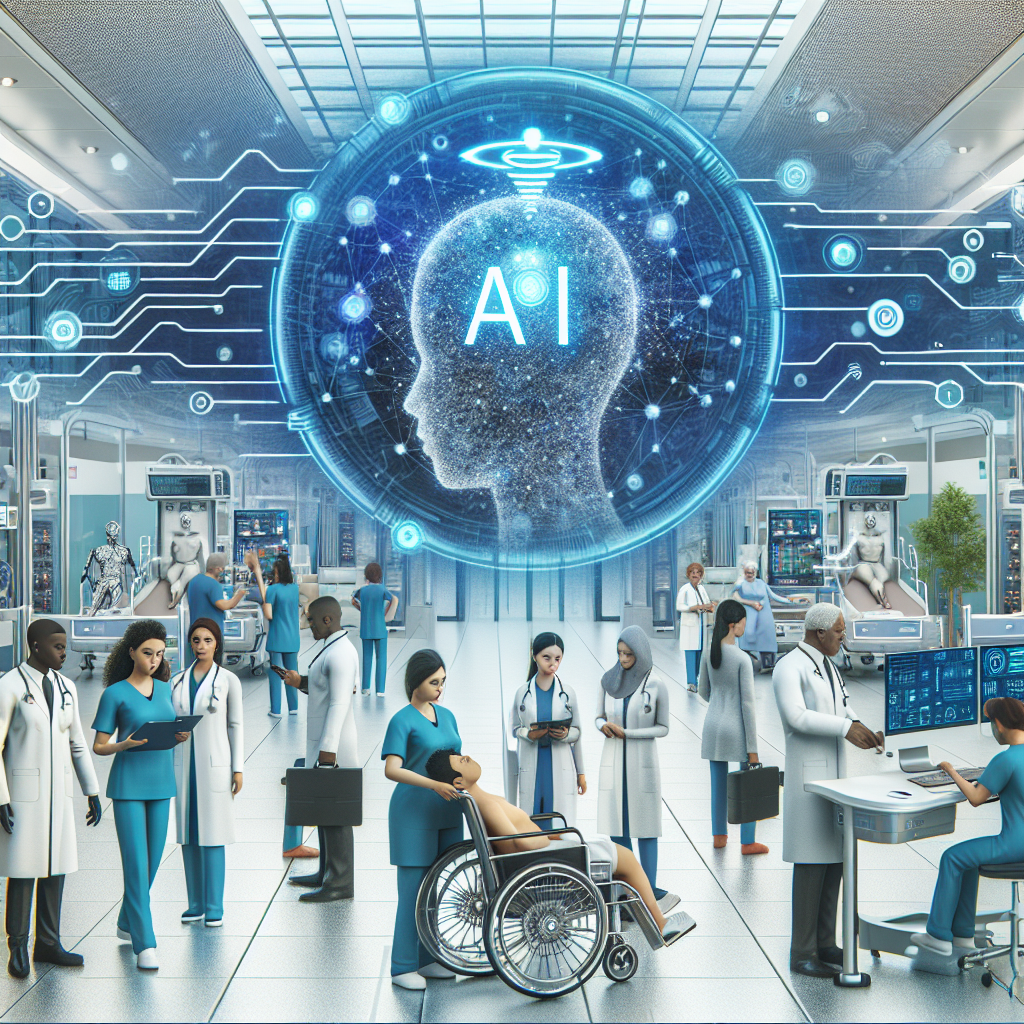Artificial General Intelligence (AGI) has the potential to revolutionize healthcare by transforming patient care and diagnosis. AGI refers to a machine intelligence that can successfully perform any intellectual task that a human being can. In healthcare, AGI has the potential to improve patient outcomes, increase efficiency, and reduce costs. This article will explore the impact of AGI in healthcare, its applications, benefits, and challenges, as well as address some frequently asked questions about this emerging technology.
Applications of AGI in Healthcare
AGI has a wide range of applications in healthcare, from diagnosis and treatment to personalized medicine and drug discovery. One of the most significant applications of AGI in healthcare is in medical imaging. AGI algorithms can analyze medical images such as X-rays, MRIs, and CT scans with a level of accuracy and speed that surpasses human capabilities. This can help in the early detection of diseases such as cancer and improve treatment outcomes.
Another important application of AGI in healthcare is in personalized medicine. AGI algorithms can analyze large datasets of patient information, including genetic data, medical history, and lifestyle factors, to generate personalized treatment plans. This can lead to more effective and targeted treatments, reducing the risk of adverse reactions and improving patient outcomes.
AGI can also be used to improve the efficiency of healthcare delivery. By automating routine tasks such as scheduling appointments, managing electronic health records, and processing insurance claims, AGI can free up healthcare professionals to focus on patient care. This can lead to shorter wait times, reduced administrative costs, and improved overall patient satisfaction.
Benefits of AGI in Healthcare
The potential benefits of AGI in healthcare are numerous. Some of the key benefits include:
– Improved accuracy: AGI algorithms can analyze large amounts of data with a level of accuracy that surpasses human capabilities. This can lead to more accurate diagnoses, better treatment plans, and improved patient outcomes.
– Increased efficiency: AGI can automate routine tasks, such as analyzing medical images and processing paperwork, leading to increased efficiency in healthcare delivery. This can free up healthcare professionals to focus on patient care and reduce administrative costs.
– Personalized medicine: AGI algorithms can analyze large datasets of patient information to generate personalized treatment plans. This can lead to more effective and targeted treatments, reducing the risk of adverse reactions and improving patient outcomes.
– Cost savings: By improving accuracy, efficiency, and personalized medicine, AGI has the potential to reduce healthcare costs. This can lead to lower insurance premiums, reduced out-of-pocket expenses for patients, and overall cost savings for healthcare organizations.
Challenges of AGI in Healthcare
While the potential benefits of AGI in healthcare are significant, there are also challenges that need to be addressed. Some of the key challenges include:
– Data privacy and security: AGI algorithms rely on large amounts of patient data to generate accurate diagnoses and treatment plans. Ensuring the privacy and security of this data is crucial to maintain patient trust and compliance with regulations such as HIPAA.
– Bias and fairness: AGI algorithms can inadvertently perpetuate bias and discrimination if they are trained on biased data. Ensuring that AGI algorithms are fair and unbiased is essential to prevent harm to marginalized groups and ensure equitable healthcare outcomes.
– Transparency and explainability: AGI algorithms are often complex and difficult to interpret. Ensuring that AGI algorithms are transparent and explainable is essential to build trust with healthcare professionals and patients and ensure that decisions are based on sound reasoning.
– Regulation and oversight: AGI in healthcare is a rapidly evolving field, and regulations and oversight mechanisms need to keep pace with technological advancements. Ensuring that AGI in healthcare is regulated and monitored effectively is crucial to protect patient safety and ensure ethical use of the technology.
Frequently Asked Questions about AGI in Healthcare
Q: What is AGI in healthcare?
A: AGI in healthcare refers to the use of artificial general intelligence algorithms to improve patient care, diagnosis, and treatment. AGI can analyze large amounts of data with a level of accuracy and speed that surpasses human capabilities, leading to more accurate diagnoses, better treatment plans, and improved patient outcomes.
Q: What are some examples of AGI applications in healthcare?
A: Some examples of AGI applications in healthcare include medical imaging, personalized medicine, drug discovery, and healthcare delivery. AGI algorithms can analyze medical images, genetic data, patient information, and administrative tasks to improve accuracy, efficiency, and personalized treatment plans.
Q: How can AGI improve patient care in healthcare?
A: AGI can improve patient care in healthcare by automating routine tasks, analyzing large datasets of patient information, and generating personalized treatment plans. This can lead to more accurate diagnoses, better treatment outcomes, and increased efficiency in healthcare delivery.
Q: What are some challenges of AGI in healthcare?
A: Some challenges of AGI in healthcare include data privacy and security, bias and fairness, transparency and explainability, and regulation and oversight. Ensuring the privacy and security of patient data, preventing bias and discrimination, and regulating AGI in healthcare are essential to ensure ethical use of the technology.
Q: What are the potential benefits of AGI in healthcare?
A: The potential benefits of AGI in healthcare include improved accuracy, increased efficiency, personalized medicine, and cost savings. AGI can lead to more accurate diagnoses, better treatment plans, reduced administrative costs, and overall cost savings for healthcare organizations.
In conclusion, AGI has the potential to revolutionize healthcare by improving patient care, diagnosis, and treatment. By leveraging the power of artificial general intelligence algorithms, healthcare organizations can increase accuracy, efficiency, and personalized medicine, leading to better patient outcomes and reduced costs. While there are challenges that need to be addressed, such as data privacy, bias, and regulation, the potential benefits of AGI in healthcare are significant. As this technology continues to evolve, it is essential for healthcare professionals, policymakers, and patients to work together to ensure that AGI is used ethically and responsibly to improve healthcare for all.

